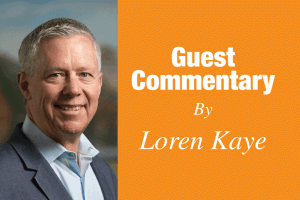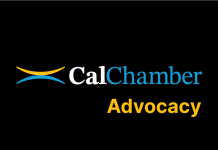 California voters are well acquainted with the initiative and recall, two of their three venerable political accountability powers. The former is a common feature of California elections, with voters sometimes deciding dozens of suggested new state and local laws on a single ballot. The recall is top of mind today, with the question of retaining or cashiering Governor Newsom up in just two months.
California voters are well acquainted with the initiative and recall, two of their three venerable political accountability powers. The former is a common feature of California elections, with voters sometimes deciding dozens of suggested new state and local laws on a single ballot. The recall is top of mind today, with the question of retaining or cashiering Governor Newsom up in just two months.
The third great accountability power is less known and rarely employed. The referendum empowers voters to overturn statutes recently-enacted by the state Legislature, local city councils and county boards of supervisors, before they have a chance to take root.
This important citizens’ tool would be weakened by proposed legislation.
The Senate Appropriations Committee will consider tomorrow whether to approve SCA 1, by Senator Bob Hertzberg, which would change the historic burden of proof for passing a state referendum, thereby reducing the ability of voters to challenge a law passed by the Legislature.
The California referendum process is a “do-over,” putting the voters into the shoes of the Legislature. Once a referendum petition has qualified for a vote, the law is suspended before it can take effect. Then the voters consider the same question as did the Legislature: “Should this measure become law?” The burden of proof for adopting the law is the same for the voters as it is for the Legislature. If a majority agree with the question, it becomes law.
SCA 1 would flip the burden of proof, in effect asking voters to debate the legislative action (should the Legislature’s decision be ratified?) instead of the proposed law itself. The measure would change the terms of the debate from the merits of the issue to a meta argument over the motivations of the Legislature. This is hardly a formula for considered debate, and misses the point of the referendum.
A referendum does not repeal an existing law because the law never took effect in the first place. The only mechanism by which an existing law can be repealed is by a subsequent act of the Legislature or an initiative measure qualified by voter petition.
SCA 1 would upend this process by changing the meaning of a “yes” vote and a “no” vote, whereby a referendum would be successful only if it receives more “yes” votes than “no” votes. This presumes that the proposed statute in question is poised to take effect and voters are deciding whether to exercise a veto. But in a referendum, voters are not acting as a check on an already approved legislative measure, like a Governor, they are in fact acting as the Legislature. This is the appropriate role for voters.
There is no evidence that this current process has either been abused or has confused voters. Qualifying a referendum for the ballot is already a time sensitive and costly endeavor (requiring the valid signatures of more than 620,000 voters collected in only 90 days), and is only used as a last resort by citizens who are intensely affected by the proposed law.
Of the more than 100 regular elections since the referendum was enacted, only 52 referenda qualified for the ballot, and of those, 21 were approved and 30 were rejected (with one pending a decision in November). In this century, voters rejected the Legislature’s earlier approval of a bill in only five of the 12 referenda that qualified. Only 12 referenda were considered out of the thousands of new laws adopted by the Legislature since 2000.
To be sure, nobody likes being second-guessed on the job. And in fact the voters may not take to the ballot legislatively-approved tax increases or urgency bills passed by a two-thirds vote.
Unfortunately, SCA 1 is but one challenge to continued voter accountability. Legislation has already been approved by the Senate that would outlaw paid petition circulators – which is the only practical method in a state as vast and distracted as California to qualify measures for the ballot.
Changing the century-old referendum process will create more confusion to the public and voters. Changing the process will further limit the ability for citizens to seek relief from what they believe may be an inappropriate or unjust law.
Loren Kaye is prsesident of the California Foundation for Commerce and Education, a think tank affiliated with the California Chamber of Commerce.


